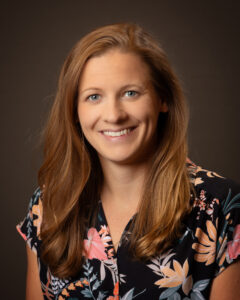
The Department of Mechanical Engineering is excited to welcome Dr. Erika Pliner as an assistant professor this spring. Dr. Pliner’s research applies core competencies in biomechanics, ergonomics, and neuroscience to improve personal and occupational safety.
Prior to joining the U, Pliner’s postdoctoral work investigated the neural components of balance training efficacy with mobile brain imaging via electroencephalogram (EEG). Pliner received a PhD in Bioengineering at the University of Pittsburgh, where her research focused on identifying individual, environmental and biomechanical risk factors of ladder falls. She is also active in translating risk factors of ladder falls to safer ladder use practices for individuals, companies, and government organizations. She funded the entirety of her research training with grants including the NIH F32 and T32 Fellowships, the Whitaker International Fellowship, and the NSF Graduate Research Fellowship. She received her BS in Mechanical Engineering and MS in Engineering at the University of Wisconsin-Milwaukee.
“As the director of the Neuroergonomics & Occupational Biomechanics Laboratory (NOBL), my research aims to improve safety and reduce accidents in high-stakes situations,” said Pliner. “High-stakes situations encompass activities where an error can lead to severe injury or fatality, such as hazardous occupational tasks or challenged stability in older adults. To tackle these complex problems, my research applies a human factor approach. I investigate individual, environmental, and interfacing factors of safe and effective activity in experimental or simulated real-world paradigms. I specialize in biomechanical and neural applications to quantify the complexity of interfacing individual-environmental factors, utilizing motion capture tools to record whole-body biomechanics and high-density electroencephalogram (EEG) to record mobile brain imaging.”
As part of her role at the U, Pliner will be working with the Rocky Mountain Center for Occupational and Environmental Health (RMCOEH) to train graduates in the Ergonomics & Safety and Occupational Injury Prevention Programs.
“I’m excited about the focused education training and strong network for collaborative work in ergonomics, safety, and occupational health in Utah,” said Pliner. “The RMCOEH has an extensive network of stakeholders with various perspectives (workers, safety professionals, companies, government officials, and researchers). This strong network provides the infrastructure for meaningful collaborative research with high societal impact.”
In addition to her research and training interests, Pliner also loves to play pickleball.
You can find out more about Dr. Pliner’s research on the NOBL website.